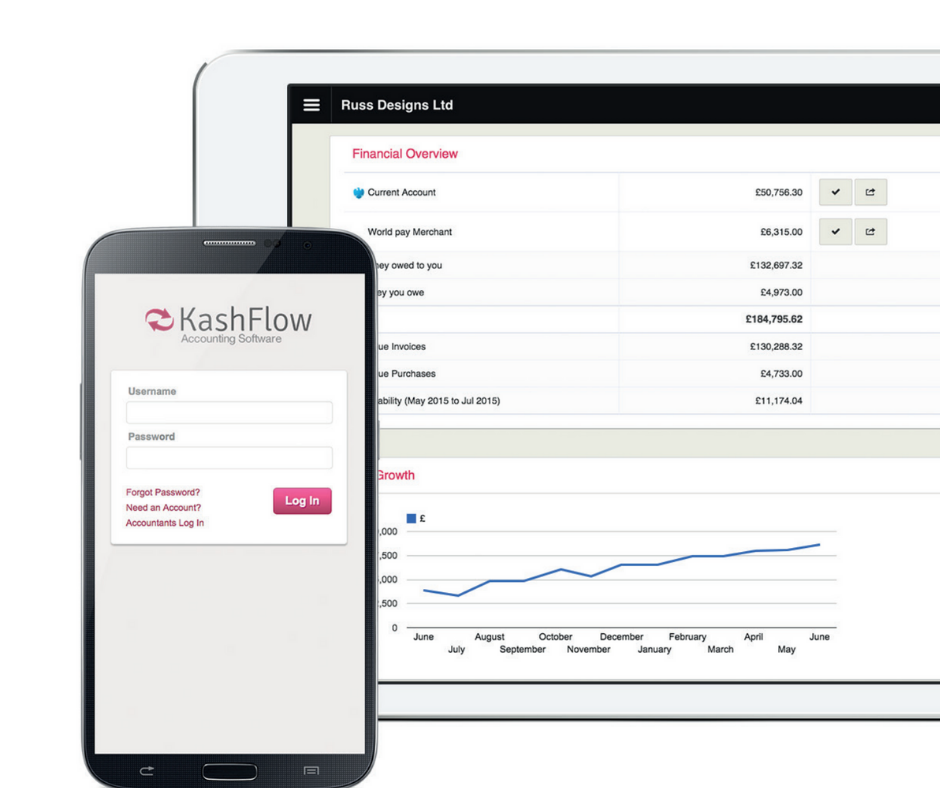On 30th October 2024, the nation stood still as the long-awaited Autumn 2024 Budget aired live on TV. Delivered by Chancellor Rachel Reeves, it marked a moment in history, being the first to be delivered by a female, who is also the first female Chancellor of the Exchequer.
As expected, this budget, quickly dubbed the “Halloween Budget” by the media, sent shockwaves through the nation with a range of unexpected fiscal and policy measures aimed at tackling longstanding issues like housing shortages, NHS funding, and the need for sustainable economic growth. It is a major pivot from past Conservative approaches, and Labour’s ambitious targets and bold fiscal changes suggest a reimagined path forward for the UK’s economic landscape.
In this blog, we take a look at what Reeves has proposed, how it will help the economy, what this means for you and tips on how to prepare.
Quick Jump Menu
- Budget Aims
- National Insurance
- Tax
- National Minimum and National Living Wages
- Capital Gains Tax
- Inheritance Tax
- Stamp Duty
- VAT on Private School Fees
- Benefits
- Pensions
- Alcohol, Fuel and Tobacco Duty
- Electric Vehicles and Air Passenger Duty
- Energy
- Other Announcements
- Top Tips
Budget Aims
What is the Chancellor Rachel Reeves trying to achieve with the Autumn 2024 Budget?
During the announcement, Reeves declared that her Autumn Budget seeks to manage the UK’s substantial debt (£2.77 million) as a priority, whilst also addressing economic priorities like improving public services and boosting infrastructure investment, as well as tackling social challenges, housing issues and the ever-growing issue of skilled labourers and workplace fairness.
She revealed that there are seven key pillars that the Labour Government are focusing on, which the budget will support.
- Restore Stability
- Get Britain Building
- Focus on Local Growth
- Skills England
- Research and Development
- Clean Energy
What is clear is that Reeves is trying to get the nation out of debt and make it more attractive to investors so that we our borrowing needs reduce significantly. Speaking to the nation, she said that “we should not be borrowing to fund day to day spending” and that we had become accustomed to “wasteful spending.”
Key Point – Over 50% of the tax hikes totalling £40bn will be paid by businesses. This is to happen alongside an increase in National Living and National Minimum wages and adaptation to workers’ rights.
Guide to Changes Announced
National Insurance
Employers National Insurance
Quite possibly the biggest change announced in the budget was to Employers National Insurance. From April 2025, employers NI will increase from 13.8% to 15% – a 1.2% increase. Alongside the rate hike, the threshold at which employers begin to pay NI will be lowered from £9,100 to £5,000.
It is said that this adjustment is projected to generate approximately £25 billion in tax revenue, supporting the government’s efforts to reduce the budget deficit.
Example
Business A has two employees earning £25,000 and £35,000 respectively.
Under the current rules, for a salary of £25,000 the Employer’s NI will be £2,194. Under the new rules, it will be £3,000.
Under the current rules, for a salary of £35,000 the Employer’s NI will be £3,574. Under the new rules, it will be £4,500.
This means Business A will be subject to an additional cost of £1,732 just for those two employees.
Employment Allowance
To counteract the impact on small businesses, the Employment Allowance—a tax relief for eligible small businesses—will increase from £5,000 to £10,500. This change is predicted to exempt an estimated 865,000 small businesses from paying NI altogether next year, with an additional million businesses seeing no change or even a reduction in their NI burden.
Example
The increase in Employment Allowance will allow eligible businesses to offset their NIC liability against the new amount, meaning that if their liability is less than £10,000, they won’t have to pay any.
Let’s imagine Business A above in fact only had two employees with a salary of £25,000 each. Under the previous rules for Employers NI, the business paid £ 4,388. Under the new rules, this will increase to £6,000. If the Employment Allowance had not been increased, they would have needed to pay £1,000 to HMRC which they are not used to paying. However, because the allowance has been increased, they do not have to pay anything and have £4,000 of allowance still left.
Our thoughts
Unfortunately, the NI increase will mainly affect larger employers, which we fear may lead to pressures on wages and potentially impact hiring practices. In addition, some firms may have to raise prices which in turn could lead to issues.
Whilst we support the fact that the government is trying to stabilise the economy and reduce debt, it seems that the impact on larger businesses has been overlooked with the changes to NI.
Tax
Income Tax Thresholds
Income tax thresholds are to remain frozen until 2028 in line with the previous government’s decision during the last budget. After this, they will rise inline with inflation to ensure that people remain in lower tax brackets at a time when wage growth will be pushing incomes upward.
The current thresholds are:
| £0 to £12,570 | 0% |
| £12,571 to £50,270 | Basic rate: 20% |
| £50,271 to £125,140 | Higher rate: 40% |
| Over £125,140 | Additional rate: 45% |
Non-Domicile Tax Regime
As previously announced, the current Non-Domicile Tax Regime is to be abolished from April 2025. Instead of being taxed on income remitted to the UK, non-UK domiciled residents will be taxed based on residence. There will be a transition period though for existing non-domiciles.
The Chancellor hopes that the abolishment of this will reduce the amount of people incorrectly using it as a method of tax avoidance.
Read our guide to Non-Domicile changes here.
Benefits in Kind
Significant changes to the reporting of Benefits in Kind (BiK) have been announced, aiming to streamline and modernise the system for employers and employees. From April 2026, employers will be required to handle BiK reporting in real-time by “payrolling” these benefits. This change mandates that taxes and Class 1A National Insurance Contributions (NICs) on benefits in kind will need to be paid through payroll systems as they accrue, rather than the current post-yearend P11D process.
The new payrolling requirement covers a broad range of benefits, although certain benefits—such as accommodation and employee loans—will remain on a voluntary basis initially, with plans for mandatory inclusion in the future. Additionally, a new end-of-year reporting process is being developed to allow adjustments for complexities like partial employee contributions. The government also plans to simplify claiming processes for business expenses not covered by employers, aiming for faster relief for employees’ out-of-pocket expenses.
National Minimum and National Living Wages
We already knew that this budget would focus on the current cost of living crisis, so a rise in wages wasn’t a shock. The Chancellor announced that effective from April 2025, the National Minimum Wage for over-21’s will rise by 6.7% from £11.44 to £12.21.
In a similar vein, the rate for 18- to 20-year-olds will also rise to £10 from £8.60 and apprentice wages will rise from £6.40 to £7.55 per hour.
Example
This time let’s imagine Business A has three additional employees working 35 hours per week on at National Living Wage. Previously they would earn £20,820.80 pa, but under the new rates will earn £22,222.20 pa.
This increase in salaries will equate to an additional outgoing of £4,204.20 for the employer but an additional £1,401.40 pa each for the employee.
Our thoughts
The government has a long-term plan to eventually move towards one single adult rate of pay. These changes go some way towards achieving this goal, without an extreme sudden impact on business owners. However, when you couple this with the rise in Employers NI, businesses are still going to feel an impact and it’s yet to be revealed how this will affect current recruitment and training initiatives.
On a more positive note, we are pleased to see the current struggles those on minimum wage have are being recognised. The introduction of a higher minimum wage gives lower paid workers legal backing to be paid more, and this in turn will hopefully go some way to helping them cope with the ever-increasing cost of living.
Capital Gains Tax
Whilst changes to CGT were widely expected and we as a nation were somewhat privy to what the rise could be, it still hit hard when the rates were announced to be effective immediately.
Under the new CGT rules, basic-rate taxpayers will now pay 18% tax on assets sold that result in a profit rather than the old rate of 10%. Higher-rate taxpayers will be affected too, paying a whopping 24% tax on the sale of profitable assets instead of the former rate of 20%.
For investors, the news wasn’t good either. From April 2025, the investor’s relief lifetime allowance – specific reliefs that allow eligible business owners and certain individuals to reduce the CGT rate on gains within a defined limit – will decrease to £1m and will see tax rates increase from 10 to 14%. This will rise again in April 2026 to 18%.
Business Asset Disposal Relief – where qualifying business assets, such as shares in a trading company or interests in a trading business, can benefit from a reduced CGT rate – will also adhere to the same rates of 14% in 2025 and 18% in 2026 as above.
Example
Person A sells a non-residential property for a gain of £30,000 and earns £20,000 pa. The gain would be taxed at the basic rate of 18%. This means a cost of £5,400 instead of £3,000 under old rules.
Our thoughts
The alignment of Capital Gains Tax rates will bring some simplicity to the tax system, which is a positive. However, the increase in rates for non-residential gains may push people to delay realising, which could cause problems. With regards to BADR rates, we feel we need a pro tax environment if we want businesses to thrive and business owners to take risks.
Inheritance Tax
Though not unexpected, for the first time in 18 years, big changes have been made to Inheritance Tax. The good news is, the current thresholds remain unchanged until 2030, and the rate at which IHT is charged remains at 40%.
Thresholds and Rates
At the moment, the Nil Rate Band is £325,000 and the Resident Nil Rate Band is £175,000. The Nil Rate Band allows anyone to inherit property, money or possessions of someone who’s passed away up to a value of £325,000 before they begin paying tax. If a house is left to a family member, as above, an additional £175,000 of tax-free inheritance is allowed, as long as the descendant is a resident (the Resident Nil Rate Band). These bands will be frozen until 2030.
Agricultural Property Relief (APR) and Business Property Relief (BPR)
This is one of the areas of IHT which has seen the biggest amendments, with changes coming into effect as soon as April 2025. From this date, the APR will be extended to include any land managed under an environmental agreement with an approved UK body such as the government, local authorities etc.
From April 2026, the first £1m of combined business and agricultural assets will continue to attract no inheritance tax at all, but for assets over £1m, inheritance tax will apply with a 50% relief, at an effective rate of 20%.
Pensions
Any inherited pensions are to now fall within the scope of Inheritance Tax, a major change as currently, pensions held within a trust fall outside the scope of IHT. From April 2027, any pension pots not used by the owner will become part of the persons estate. The Inheritance Tax on these pensions will be paid directly from the pot at the same rates mentioned above.
Stamp Duty
Stamp Duty Land Tax is a tax which often comes under fire during the budget. This year, significant changes were once again made, with some seeing rates revert back to those of 2022.
Additional Home Surcharge
Effective from 31 October 2024, those who purchase an additional property will be liable to pay a 5% surcharge, up from 3%. This two-point increase applies across all SDLT bands, impacting buyers in England and Northern Ireland purchasing rental or holiday homes.
Main Home Thresholds
The regular (standard) Stamp Duty Land Tax (SDLT) rates in England and Northern Ireland apply to buyers purchasing primary residences and are structured progressively, meaning each portion of the property price is taxed at a specific rate. It was announced in the budget that there will be a change to these rates.
Here’s a breakdown of the current SDLT rates and the changes coming into effect:
Up to £250,000: 0% – from April 2025, a 2% rate of SDLT will apply to residential property with a value of
- £125,000-£250,000.
- £250,001 to £925,000: 5%
- £925,001 to £1.5 million: 10%
- Over £1.5 million: 12%
First Time Buyers
First-time buyers currently receive a relief, with no SDLT paid on properties up to £250,000 and reduced rate of 5% on properties between £250,000 and £625,000. However, from April 2025, this will reduce to £425,000.
Example
Let’s imagine a first-time buyer was buying a property in London for £500,000. The stamp duty due on the property would at the moment be £3,750, however, from April 2025 it would be £10,000.
If a non-first-time buyer was purchasing the same property, at the moment stamp duty would be £12,500, but from April 2025 they would pay £15,000.
VAT on Private School Fees
We’ve known about this for some time, so many have already been able to forecast the impact this will have. Nevertheless, it will make a significant difference to the cost of sending a child to a private school.
From January 2025, the VAT exemption private schools currently have will be removed. This means all fees to parents will be subject to VAT at a rate of 20%.
Example
The average cost of sending a child to private school in the UK, outside of London, is £18,000. If we use this figure to determine the average cost with VAT added, it is forecasted that parents will pay an additional £3,600 per year.
£18,000 x 1.2 (20% VAT) = £21,600
Benefits
Carers Allowance
Effective immediately, those claiming Carers Allowance will be allowed to increase the number of hours they work in a week to 16 due to the rise in weekly earnings limit. This will mean they are eligible for full Carers Allowance whilst earning £10,000 a year or less.
Disability Benefits and Working Age Benefits
Disability benefits and working age benefits including Universal Credit will be increasing by 1.7%. According to the government, the increase is worth an average of £12.50 per month for a family on Universal Credit.
In addition to the increase, the rate at which debt can be directly recovered through UC will be reduced from 25% to 15%, known as the Fair Repayment Rate. The government suggested that this will significantly improve finances amongst benefit families who are struggling, estimated that 1.2m people will see more of their income each year because of this.
Pensions
As discussed above, the biggest change in pensions is the fact that unused pensions will no longer be exempt from Inheritance Tax. However, other minor changes were made to pensions.
The State Pension triple lock will remain in place for the current parliamentary term. As a result, both the basic and new State Pension are set to rise by 4.1% in 2025-26, reflecting the recent growth in average earnings.
The government will also adjust the tax rules on overseas pension transfers. Starting from October 30, 2024, transfers to Qualifying Recognised Overseas Pension Schemes (QROPS) in the European Economic Area (EEA) and Gibraltar will now be subject to the Overseas Transfer Charge. This change aims to prevent situations where individuals benefit from double tax-free allowances on these transfers.
Additionally, from April 6, 2025, the government will align requirements for Overseas Pension Schemes (OPS) and Recognised Overseas Pension Schemes (ROPS) based in the EEA with those outside this region.
In another shift, scheme administrators for registered UK pensions will need to be UK residents from April 6, 2026, to improve the tax administration process.
Finally, for the Mineworkers’ Pension Scheme, the Investment Reserve Fund will be transferred to the scheme’s trustees. This will allow the fund to be distributed as an extra pension benefit to scheme members, alongside a government-led review of the scheme’s current surplus-sharing model.
Alcohol, Fuel and Tobacco Duty
In the 2024 Autumn Budget, Chancellor Rachel Reeves announced a series of adjustments to alcohol, fuel, and tobacco duties:
- Draft duty will he cut by 1.7% meaning the cost of a pint in the pub will be 1p less
- Duty will be increased on hand rolled tobacco
- The flat rate duty on vaping liquid will be increased to £2.30 per 10ml from October 2026
- The fuel duty will remain frozen for another year
- Tax on non-alcoholic drinks will increase inline with inflation
Electric Vehicles and Air Passenger Duty
Electric Vehicles
Although it keeps getting pushed back causing people to wonder if it will ever come into effect, the budget confirmed that the plans to ban new petrol and diesel cars from 2035 still very much remain. In a bid to achieve this, the Chancellor revealed a number of supportive measures that will be seen in the coming years:
- First Year Rates for car tax on electric vehicles will be frozen until 2029-30 at £10
- More investment (£200m) in electric vehicle charging points in 2025
- An additional £120m will be dedicated to the purchase and manufacture of new EVs through the plug-in vehicle scheme.
Air Passenger Duty
The changes to Air Passenger Duty announced in the 2024 Autumn Budget will have minimal impact on short-haul commercial flights, with flights by private jets being affected the most. This is because the rate of Air Passenger Duty of those using private jets will increase by 50%. Whilst Reeves said that short haul commercial flights won’t feel much impact, she declared that the cost of a flight can be expected to increase by £2 due to APD rates needing to fall inline with inflation.
Energy
It was very apparent in the Chancellor’s budget that the government is prioritizing clean energy in line with their manifesto. One of the announcements made was that £100m is to be allocated for projects focusing on clean energy.
In addition, a number of measures are being introduced to improve home energy efficiency:
- £3.4bn of investment will be given over the next three years to help people switch to low carbon technologies and improve home energy efficiency
- There will be more funding for the Boiler Upgrade Scheme to continue
- Heat pump manufacturers will receive funding to keep up with demand
- £1.8bn of funding will be allocated to fuel poverty schemes
Other Announcements
Below is a summary of other announcements made in the 2024 Autumn Budget.
- A £1.8bn pot will be made available for compensation for those subject to the Post Office scandal.
- DWP fraud teams are to be expanded and a major crackdown on benefit fraud is to be seen. Debt is expected to be recovered in a better way and will see the DWP have authority to access bank accounts to recover debt. £214bn will be given for 16 trailblazer programmes designed to reduce the benefits bill.
- There will be a major crackdown on tax avoidance. The HMRC are intending to ‘go after’ those who promote tax avoidance schemes. The government will be investing in modernising HMRC systems so they can increase compliance and better target fraud. This is expected to raise an additional £9bn.
- £1bn will be set aside to extend the Household Support Fund.
- The number of breakfast clubs across the UK will be tripled.
- An additional £3.5bn will be allocated to the core schools’ budget to help hire teachers etc.
- There will be an uplift in funding of £1bn to improve SEN outcomes.
- £1.3bn will be delivered to local authorities for grant funding including £230m for homelessness and housing.
- Funding will be allocated for Holocaust Memorial Day 2025 celebrations to commemorate the 80th Anniversary of the liberation of Auschwitz-Birkenau, as well as funds to celebrate VE and VJ day in 2025.
- The new Employment Rights Bill, originally unveiled on 10th October 2024 and discussed in the budget, will bring forward 28 individual employment reforms (watch out for our blog on this).
Our Thoughts
We are pleased to see the government has recognised the increasing cost of living and responded in a way that gives workers more legal backing to earn more. However, we would like to have seen the government recognise that some businesses have had it tough and respond in a way that shows they have their back too.
We’ve always been of the mindset that a pro-business economy will generate economic growth, but with the changes due to come into force following the budget, we fear businesses won’t be encouraged or incentivised to invest and recruit.
We accept the country is in a tough state, but such tax rises need to come with a plan of where the funds are going and where will it be spent. For example, we would have liked a clearer breakdown of how public services will be improved. There are children and those with mental health conditions for example on waiting lists as long as 18 months.
Tips on How to Respond
So, with all these changes coming into effect, how can you respond?
Plan ahead. If you’re a business owner, begin with calculating what the increased costs will be. Once you have that figure, you can see what impact that will have on profits and decide how you will raise the additional revenue.
If you identify the need to increase prices, ensure it’s done the correct way. Start by communicating the price increases with your customers now so they have plenty of time to adjust and factor it in their forecasts too. Perhaps you could introduce incentives to purchase more now at a lower rate which would also help you raise money to have in the bank for the future.
If you have a portfolio of businesses assets, now is the time to consider whether those assets can be passed down to beneficiaries without incurring CGT and higher rates of Inheritance Tax. We can support you further to discuss how you can take advantage of any reliefs and trust structures.
In a similar vein, now is also the time to bring forward any planned transactions such as property purchases to avoid the additional SDLT charge.
From and Inheritance Tax perspective, one of the things we always ask clients to work out what their Inheritance Tax liability would be if something were to happen to them today. Once you’ve done that, invest in an insurance policy that would pay out the value of that liability. This will give you peace of mind that if something did happen, the IHT would be covered. From here, what you can do is mitigate your IHT. By this we mean exploring legal ways to reduce the amount due. For example, by setting up trusts, investing, and looking into specific reliefs such as the Gift Hold-over Relief.











